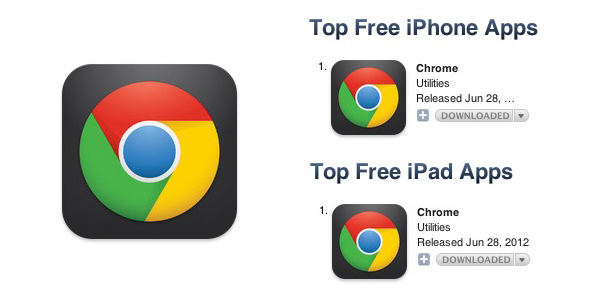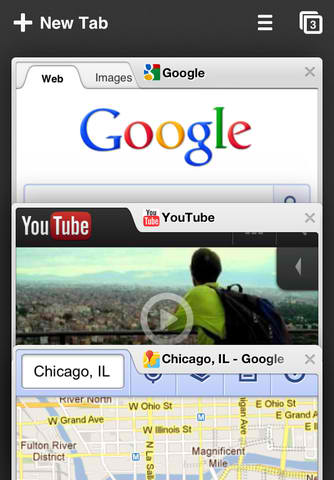
LinkChecker lives up to its namesake
There are many tasks involved in maintaining a large website, but one of the most important comes in regularly validating your links. And that’s because a mass of broken links won’t only annoy your visitors, it’ll probably also reduce the search engine visibility which allows people to find you in the first place.
Help is at hand, though, in a variety of tools which aim to validate a site’s links for you. And LinkChecker is probably one of the most straightforward.

PCs are still doomed and their end will come quicker than you think
A reader pointed out to me this past week that the personal computer is well over 30 years old -- a number that has real consequence if you are familiar with my work. He remembered I predicted in 1992 that PCs as we knew them would be dead by now.
I was obviously a little off in my timing. But only a little off. PCs are still doomed and their end will come quicker than you think.

ShareMeNot protects your privacy from prying social networks
Most people who have used the Internet for any length of time are only too aware that websites are able to track their online activities by using cookies. This information is incredibly useful to advertisers, but there are steps you can take to help protect yourself. With the ever increasing popularity of social networks there is a new breed of tracking in the form of Like buttons -- and this is something that ShareMeNot can tackle.
There are very few Internet users who do not have a Facebook account, but there are numerous other social networks such as Google+, LinkedIn and many more. Many of these have their own site integration buttons that you have no doubt seen adorning the pages of many sites you visit -- they will give visitors the options of "Liking the current page on Facebook, or sharing it via some other means.

Microsoft ad and search biz is a $6.2B failure
Worthless. That's the description that best describes Microsoft's ambitious aQuantive acquisition, announced in May 2007. Today, after the market closed, the software giant announced a "non-tax-deductible income statement charge" of $6.2 billion booked last year. Fiscal 2012 closed June 30, so the timing has a deliberateness.
Microsoft probably should have told everyone before the quarter's close. Doing so today, during a big holiday week (Fourth of the July), mitigates the negative news. Lots of people are on vacation.

Does Chrome have a future on iOS?
There's a certain, sweet justice: While Apple stomps all over Android licensees in the courts after falling out with Google, Chrome tops both iPad and iPhone App Stores. Last week, Google's browser invaded iOS -- eh, was granted admittance to the App Store -- and is ready to put Safari out to pasture.
On the other hand, the competition isn't exactly stellar. Chrome beats out Pinger, CSR Racing and Talking Ted on iPhone. (What? No cat video app?) But there is now a choice among browsers. On the desktop, Chrome retained its No. 1 usage share position in June, according to StatCounter. The question now: How long before Chrome deeply encroaches on Safari on iOS?

YouTube isn't the future of TV
In a few weeks I’ll launch a YouTube channel where you’ll be able to see lots of shows readers have asked about, including Startup America and even that lost second season of NerdTV. YouTube, as the largest video streaming service anywhere, is the absolute best place for me. But YouTube isn’t the future of TV.
I know this because TV is a business and this channel I’m launching is a business and I’ve spent the last several weeks talking to investors and running the numbers every which way. I’ve spent many hours with my friend Bob Peck looking at the economics of YouTube and my unequivocal conclusion is that while YouTube is great, it isn’t TV.

Celebrate the half-year with one of these 24 software downloads
We’ve reached the beginning of July but shouldn't forget June, which ended with a swatch of updates and releases.
Security is always a priority like these: avast! Free Antivirus 7.0.1451 is the free version of the AV tool, with avast! Pro Antivirus 7.0.1451 also featuring the same new Emergency Updater and improvements to sandboxing. Also available is avast! Internet Security 7.0.1451 which includes not only virus protection, but also a firewall, web filtering and more. Another free firewall is available in the form of the newly updated ZoneAlarm Free 10.2.64.0 and if you want virus protection as well, you might want to take a look at ZoneAalarm Free Antivirus + Firewall 10.2.

Four self-hosted Dropbox-like services businesses can use
File synchronization services like Dropbox have really taken off in recent time. They basically allow you to sync files between devices using cloud storage as buffer. Depending on the service, you get web access, document editing options, photo galleries, media streaming and more on top of that.
All services have in common that they encrypt the connection between your computer and the cloud host to protect the data from third parties that try to intercept or record what is being transferred. Each service has implemented its own scheme, and it is often difficult and sometimes even impossible to find out how the data is protected by the service.

Nexus 10: Three extra inches of BYOD Hell
It’s relentless. Just when my psyche was beginning to recover from the Nexus 7 bombshell, here comes the Nexus 10. A rumored upsized-version of Google’s recently announced reference platform, the Nexus 10 will be to the iPad what the Nexus 7 is to the Kindle: An immediate, existential threat pounding on the gates of Fort Cupertino.
To Apple, the thought of an ultra-cheap (think sub-$300), 10-inch iPad fighter must send chills down CEO Tim Cook’s spine. But to me, the Nexus 10 represents something much worse: Three extra inches of BYOD hell for enterprise IT shops.

It's a gargantuan war among industry titans and the winners will control everything for years to come
Damn, what an extraordinary month.
Let’s recap. First, we saw a spate of exciting new Ultrabook announcements, along with some x86- and ARM-based Windows 8 tablets at Computex. Then Apple introduced new spins of iOS and OS X for tablets and PCs, respectively, at its developer gathering. Microsoft unveiled Windows Phone 8 at the Windows Phone Summit -- and let's not forget the Surface tablet. And this week, Google rolled out new products and concepts buckshot-style at Google I/O, showcasing its first branded tablet, the Nexus 7, and Android 4.1, just to name a few.

Google+ celebrates 1st birthday with Events and History
[portfolio_slideshow id=82031]
One year ago today, Google moved onto Facebook's turf and stunned techdom in the process. How much has changed? Google+ now has a total of 250 million users. Of that figure, Google says 150 million people use the service at least monthly, and 50 percent of those active users do so daily. That doesn’t actually mean 75 million people go to Google+ every day though -- it just means that they have some sort of interaction with Google’s social features, or more likely, click +1 buttons.

Google takes on Amazon with Compute Engine cloud service
Google has Amazon in its sights. The Mountain View, California company has announced Google Compute Engine, its answer to Amazon's Elastic Compute (EC2) service. While the company currently only offers its cloud platform in limited preview, it is likely wider availability will come in short order, likely later this year.
Google will provide customers with virtual machines in 1,2,4, and 8 core-configurations running Linux. Each virtual machine will come with 3.75GB of RAM per virtual core, and storage is provided through Google's new persistent block device, or its newly announced Google Cloud Storage product.

Google polishes iOS, adds Chrome trim
In its second day keynote at the I/O 2012 developer confab, Google announced it has brought the Chrome browser to Apple's iOS.
Macquarie analyst Ben Schacter recently released a report that stated that Apple may already be reviewing the app, estimating that it should be released second quarter of this year. However, due to the restrictions in Apple's developer terms of service, it's not going to be the full Chrome experience.

Google I/O Liveblog Day 2 -- how could it possibly be better than this?
I've covered lots of events over the years, but few as exciting as Google I/O 2012. Seriously, the cloud computing giant innovates in ways that, well, people attribute to Apple. There's a very aspirational quality about presentations so far, right down to the hard-knuckle coding sessions. You can feel a real sense of empowerment in the air -- that somehow these developers, and the customers they create products for, will have better lives for participating in this ecosystem.
Like yesterday, I will liveblog the keynote, which begins at 10 am PDT (1 pm Eastern Time) and post in reverse chronological order, meaning the newest stuff will be one top. But it's hard to imagine how Google could out-do yesterday's stunning presentation. Still, there is much ground to cover -- Chrome, Chrome OS, Google TV and the rumored Amazon Web Services-like platform, to name a few. There are still two days of sessions yet. Check back and refesh often.

Need a free, compact web server? Try Serva
Equipping your network with a web server can provide some useful extra ways to share files and information. Of course if you’ve tried to set one up before then you’ll know the process isn’t always straightforward, but Serva aims to change all that.
The program offers straightforward support for several protocols (http, ftp, tftp, dhcp, dns, sntp, syslog), yet somehow remains ultra-lightweight (under 2MB). And better still, it’s portable, which means you can run servers just when you need them, without affecting the host system for the rest of the time.
